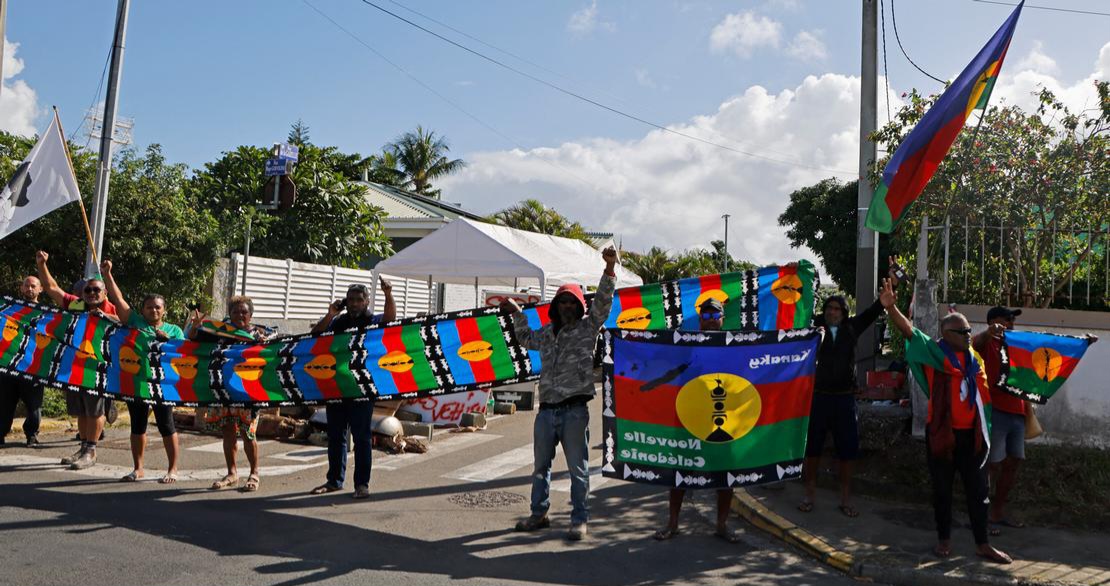Nouméa, New Caledonia, May 25, 2024, The Europe Today: A policeman fatally shot a 48-year-old man on Friday as protests against the French government continue to roil New Caledonia. The incident, which marks the seventh death since the unrest began almost two weeks ago, occurred when the officer was attacked by a group of about 15 people, according to New Caledonia prosecutor Yves Dupas. The officer is now in custody, and an investigation is underway.
Macron Calls for Calm
French President Emmanuel Macron visited New Caledonia on Thursday in an attempt to quell the political crisis. Before departing on Friday, he addressed the media, urging an end to the violent disruptions.
“What I ask for, immediately, is for roadblocks and flash points to be lifted,” Macron stated. “Once we’ve seen that happen, the next step is that we will lift the state of emergency.”
On Friday, police dismantled approximately 100 roadblocks around the island.
Memorial Held for Fallen Officers
In Paris, French Prime Minister Xavier Salou attended a memorial service for two gendarmes who were killed during the recent unrest. He emphasized the precarious situation in New Caledonia, noting that “anything could cause it to falter.”
Historical and Social Context
New Caledonia, a French overseas territory since 1946, has a deep-seated divide between the Indigenous Kanak population, which faces a poverty rate of 32.5%, and the predominantly white non-Kanak population, which has a poverty rate of 9%. The Indigenous Kanak people have long sought independence from France, but three referendums between 2018 and 2021 have failed to secure it, with the most recent vote boycotted by many Kanaks.
The current protests are driven by opposition to proposed changes in voting regulations, which would add about 25,000 people to the electoral roll, including those who have been residents of the archipelago for at least ten years. Pro-independence leaders argue that these changes would favor pro-France politicians, while supporters of the reform contend that it would enfranchise long-term residents.
Protests Continue
Christian Tein, of the Field Action Coordination Cell (CCAT), which has been organizing the protests, has vowed to continue resisting the proposed electoral changes and pushing for independence.
“We remain mobilized,” Tein declared in a social media broadcast. “We maintain the resistance in our neighborhoods in a structured, organized way.”
The ongoing unrest and recent incidents highlight the fragile and volatile situation in New Caledonia as the island grapples with its future political status and the socio-economic divide between its populations.


